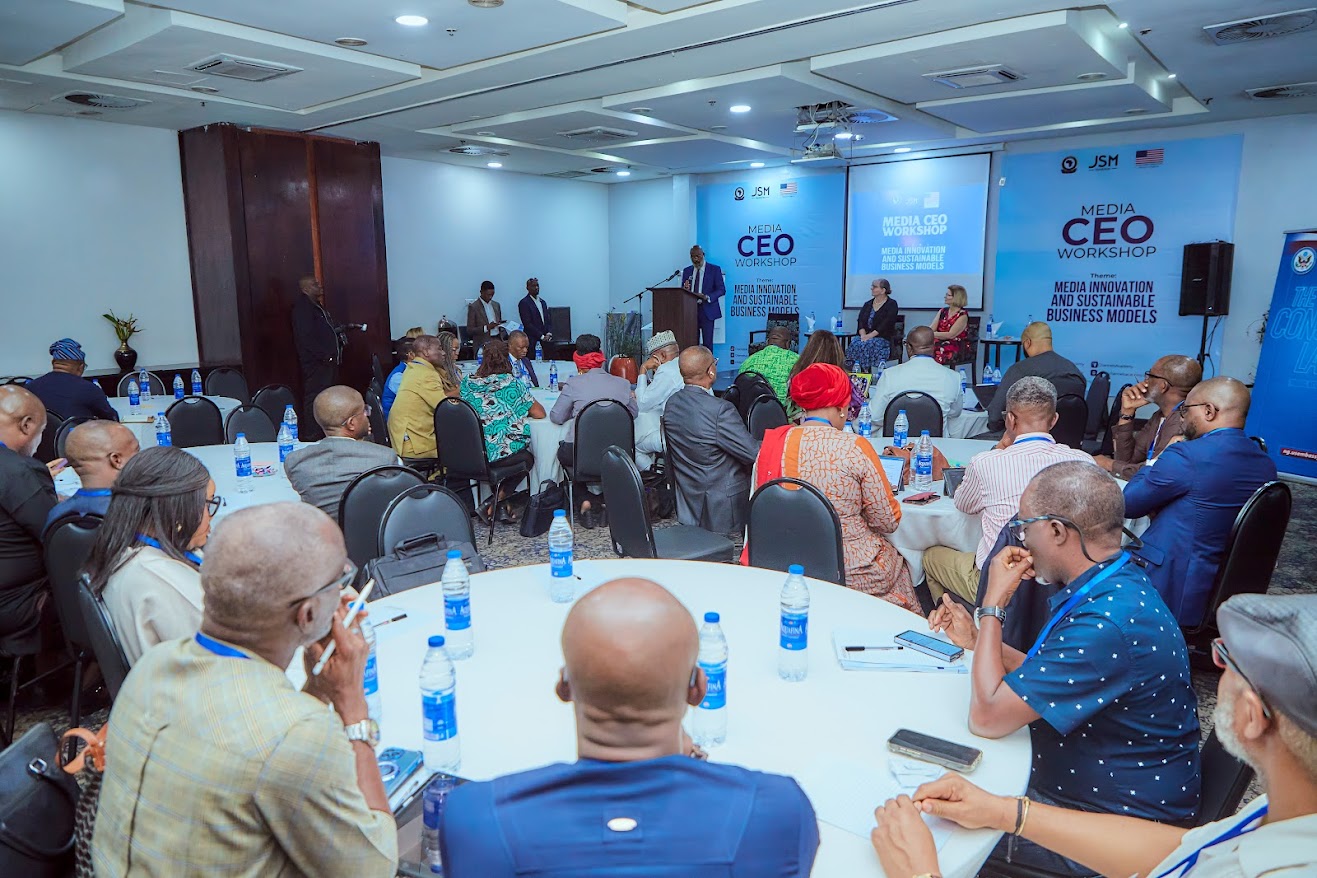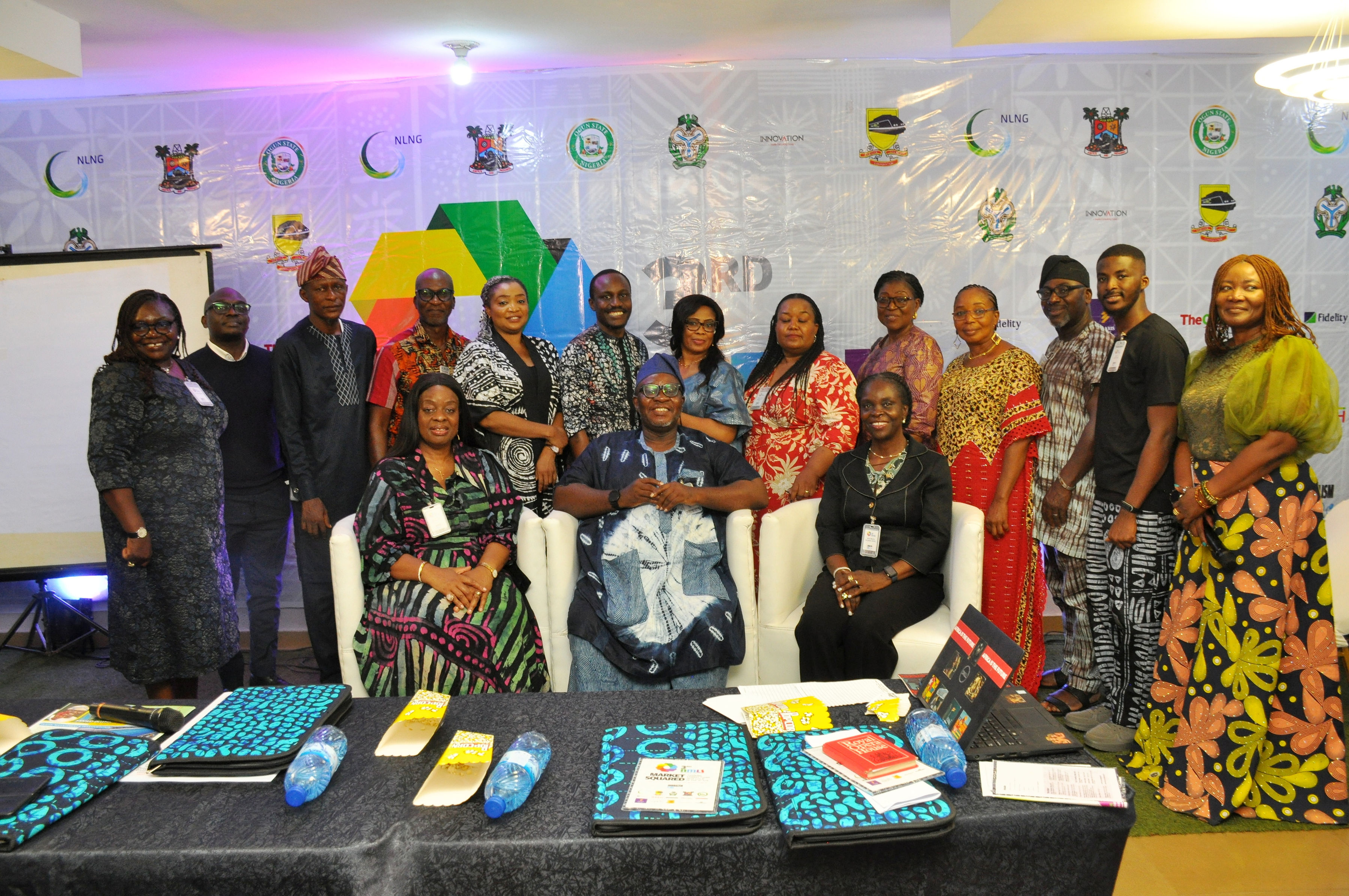Most media leaders, including founders, publishers, managing directors, Editors-in-chief, editors, managers and others usually have “good” reasons why they cannot spare time to attend conferences, Summits and training, especially locally organised ones.
They reckon that the hours and days to attend such gatherings are too precious to spare if they are to attend to various urgent issues in their companies.
Even when the themes and topics of the programmes are on issues they are battling to resolve daily, they imagine that discussions may not be worth their time.
“How will going to such programmes help me pay my salaries at the end of the month, buy newsprint or get more adverts,” some would say.
If there are media leader or CEOs who used to give such excuses for declining invitations, but attended the 3rd Nigeria Media Leaders Summit in Abeokuta organised by The Journalism Clinic and Media CEO Workshop in Lagos by the Channels Academy last week, I’m sure they will no longer miss out of such opportunities again.
Many of the participants left the two top- level media management gatherings realising that the solutions to some of the various issues they are seeking for do not lie in staying away, but maximising the opportunities for getting invaluable insights, collaboration, networking and more.
” I used to think the problem in my media house is peculiar to me, now I know I’m not alone and more importantly, I now have network of colleagues who I can reach out to and willing to help me,” a female broadcast executive said.
A CEO who has been trying to find how to monetise her company’s AI Assistant discussed the issue with another participant on the arrival day of the Media CEO Workshop and got some suggestions which she is working on with her staff.
“I am so glad about the opportunity to get help from others who have expertise on what I need to do,” she said.

While the theme of the Summit is “MARKET SQUARED – Turning connections into Gold in the AI” age, the CEO Workshop focused on “Media Innovation and Sustainable Business Models.”
The Abuja edition of the workshop was held ahead of that of Lagos.
At both gatherings there were abundance of invaluable experience sharing, best practices, survival strategies, innovative approaches and more, which the media executives need for their companies to be sustainable in the troubled economy they are operating in.
“The Summit couldn’t have come at a better time. I’m grateful for the opportunity. Facilitators were kind enough not to gatekeep,” an editor said.
The Managing Director of The Punch, Mr Joseph Adeyeye joined the panel discussion at the Summit virtually for two hours to share among others his company’s experience as a legacy organisation in responding to the changing audience pattern.
He explained that adopting a digital first policy and having multimedia editorial gathering process has enhanced his company’s operations tonmaintain it’s leading position in the newspaper business in the country.
The Editor-in-chief of Premium Times, Mojeed Musikilu, recalled how due to lack of the required large funds for launching out and lessons learnt from working at the defunct NEXT Newspaper, his company opted to start with having a not-for-profit -organisation, Premium Times Centre for Investigative Journalism now Centre for Journalism Innovation and Development (CJID) with programmes not only in Nigeria but across the continent.
Other media organisations, including The Punch, Daily Trust, Women FM, The Nation now have not-for-profit Foundations.
Founder of Women Radio, Mrs Toun Okewale Sonaiya, noted the inadequacy of revenue from regular advertising and the need to explore other options including hosting events, membership and others as her organisation has done.
Ten years on, she proudly declared that her station has not owed salaries of staff, which is a common trend in the industry and pays other allowances and benefits.

The open house, largely off-record discussion approach adopted by the trainer at the CEO Workshop, supported by the United States Diplomatic Mission in Nigeria, Stacia Philips (Deshishku), former executive vice president of ABC News for Business Development and Operations, enabled the participants to share lots of insights and tested models.
The timely issues discussed included Leading Through Change, Growing and Retaining Audiences, Attracting and Retaining Talent, Fostering Collaboration, Funding and Investment Opportunities, Exploring New Revenue Streams and a Peep Into the Future of Media.
The question on the first media jobs which each participants responded to gave them the opportunity to recall how they started on their career journeys to where they are now and the need to support their staff amidst the changes the industry is going through if they want to retain them.
The issue of growing and retaining audiences was exhaustively discussed at both programmes with the consensus that media organisations have to make deliberate efforts to attract young audiences whose content preferences are not the same with what many legacy media organisations are used to offering.
The youths who make a large percentage of our population have to be reached on various digital platforms and formats , like TikTok, Instagram, podcast and others which have abundant potentials for monetisation.
It will also require having young staff as some of the organisations are already doing so to drive their operations at various levels, while ensuring professional standards.
Expectedly, Funding and exploring revenue streams engaged the attention of the executives as they lamented the dire state of the nation’s economy that has impacted negatively on their operations, but they got some suggestions on how to navigate the tough media terrain and remain sustainable.
Funding and Investment options require proper understanding and capacity to access them to avoid losing out in the long run. Even for grants, ability to deliver on the terms and contributions will matter.
For the broadcast stations, battling to afford high cost of power, Founder of Omalicha FM, Angela Agoawike, Owerri, disclosed how her station relies mainly on solar power.
How will AI impact on the operations of media organizations? The tools have to be used ethically for various things they can do beyond writing to make possible revenue.
Principal Consultant, DKO Consulting, Dolapo Otegbayi, however cautioned at the Summit that ” AI can help you find your audience, but only empathy keeps them.”
From the takeaways by the participants at the Summit and Workshop, the media leaders are poised to collaborate more than competing, including joint production, sharing content and meeting more regularly to discuss and find solutions to existential challenges.
They really have no choice as Founder of The Journalism Clinic, Mr Taiwo Obe stated in his welcome address at the Summit, stressing the need to rethink and reinvent the media business model to still be relevant.
“We are in a running crisis of reach, revenue and relevance,” he said.
In addition to all the strategies for remaining sustainable, the General Manager of Channels Academy, Kingsley Uranta reminded the CEO’s of the importance of prioritising the welfare of their staff.
“It’s important to improve on the living standards of our reporters. If they have nothing in their pocket and nothing to fall back on, you are setting them up for mediocrity.”
READ ALSO: #IWD2025: ‘Resourceful’ media women (1)

